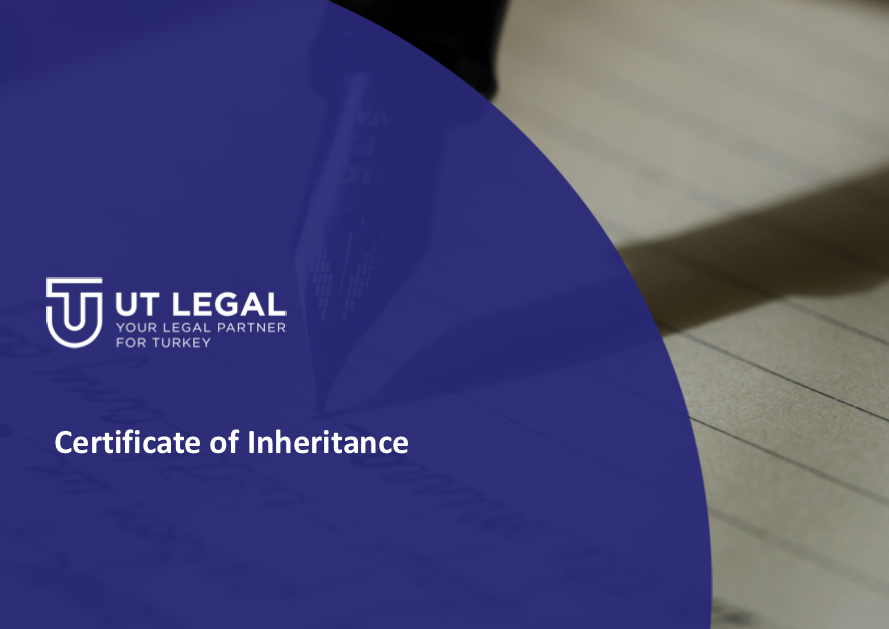Obtaning a certificate of inheritance in Turkey as a foreign citizien might be a complex legal issue. In this post, we answer our client frequently asked questions about certificate of inheritance in Turkey.
1. What is the Certificate of Inheritance in Turkey?
A Certificate of Inheritance in Turkey is an official document that proves who the beneficiaries of a deceased person are. It is issued by the Turkish courts, or by Turkish notaries (only in the case of Turkish citizens). It is required by law so that the ownership of the inherited assets can be transferred to the heirs.
2. How can I obtain a Certificate of Inheritance in Turkey as a foreign citizen?
In order to obtain a Certificate of Inheritance in Turkey as a foreign citizen, the beneficiaries to the estate of the deceased will need to apply to the appropriate court in Turkey and provide the documents that are required, e.g. the death certificate, the will (if applicable), the marriage certificate (if applicable), the birth certificates of the children (if applicable) etc. Based on these, the court will then establish who the legal beneficiaries are, before issuing the certificate.
3. Is it required that the deceased should have left a will?
No, a will of the deceased is not always required. If the deceased did not leave a will, then his inheritance will be distributed according to the Turkish Civil Code, which specifies who the legal heirs are based on their relationship to the deceased.
If the deceased did leave a will, then his inheritance will be distributed according to the terms of the will. It should be noted, however, that Turkish Law establishes the concept of a “reserved portion” for heirs that are the next of kin. This means that certain heirs, like the children, are entitled to a minimum share of the estate, regardless of the wishes of the deceased, as expressed in his will. The percentage of the reserved portion is different for each next of kin and each case has to be evaluated separately.
It is important to note that even if there is a will, the heirs must still obtain a Certificate of Inheritance to transfer the ownership of the bequeathed assets to their names.
4. How long does it take to obtain a Certificate of Inheritance in Turkey?
The length of time that is needed to obtain a Certificate of Inheritance in Turkey can vary depending on a number of factors, including the complexity of the case, the workload of the court, and the availability of the required documents. Once a case has been filed, the court will usually provide you with an estimate.
5. What will happen if I do not claim my inheritance in Turkey?
According to Turkish Law “If the immovable property has no heirs according to Turkish law and if movable property has no heirs according to the national law of the deceased, his estate in Turkey shall belong to the state.” In other words, if you do not claim your inheritance in Turkey, the property will be considered as having no heirs and the state can claim it after a certain time.
6. Do I need a lawyer to obtain a Certificate of Inheritance?
It is not compulsory by law to employ the services of a lawyer to obtain a Certificate of Inheritance in Turkey. However, it is always advisable to have a lawyer, especially if you are a foreign national. An experienced Turkish lawyer will represent you in the whole procedure and will complete the inheritance process without delays and surprises.
If you have any questions about the inheritance process in Turkey, please do not hesitate to contact us. UT Legal, through its offices in London and Istanbul, can handle all the procedures for you.

